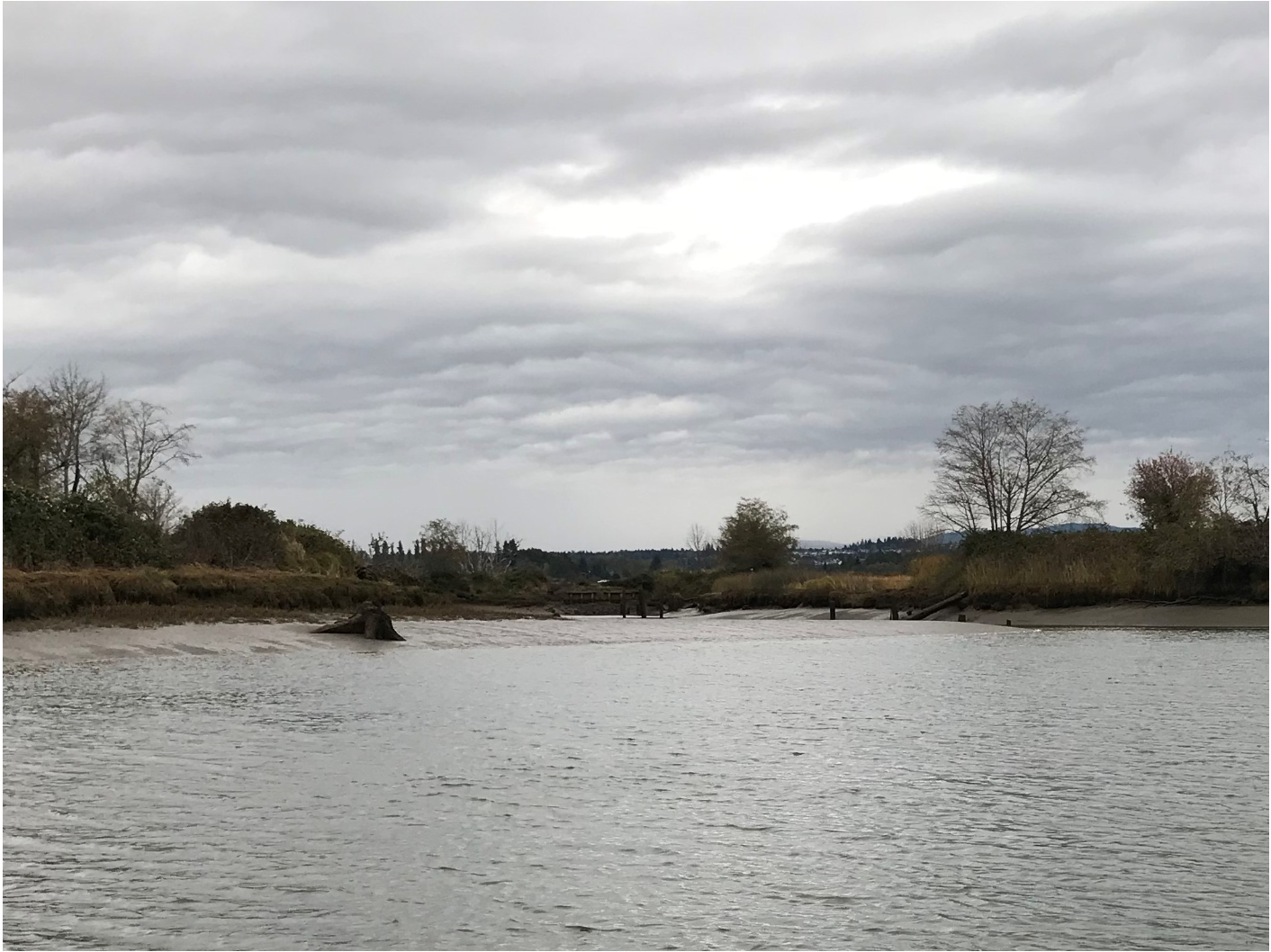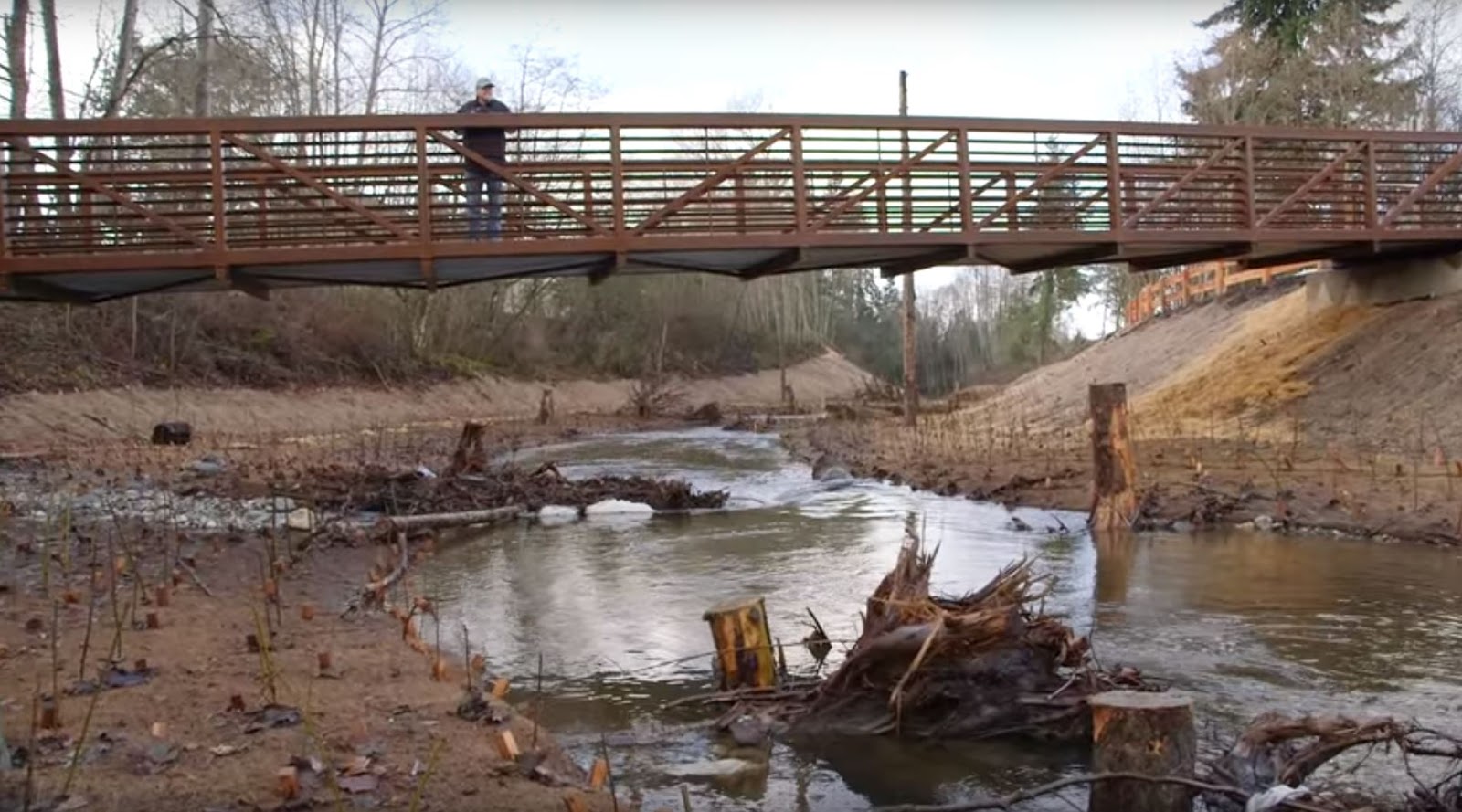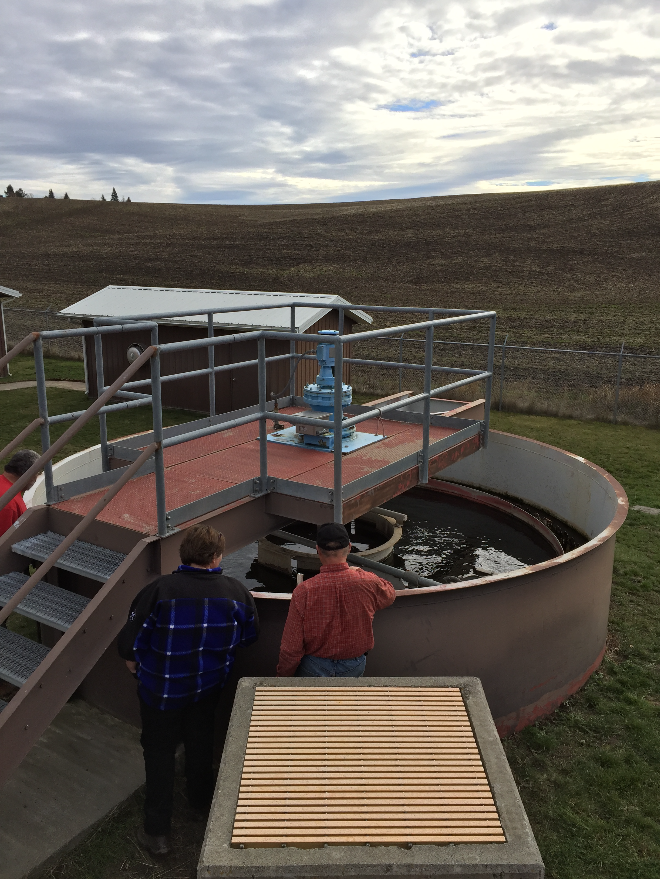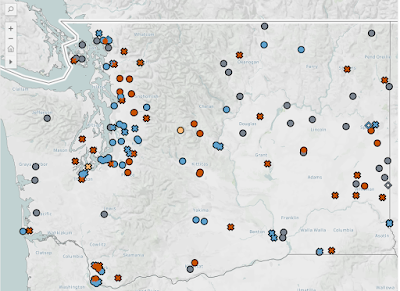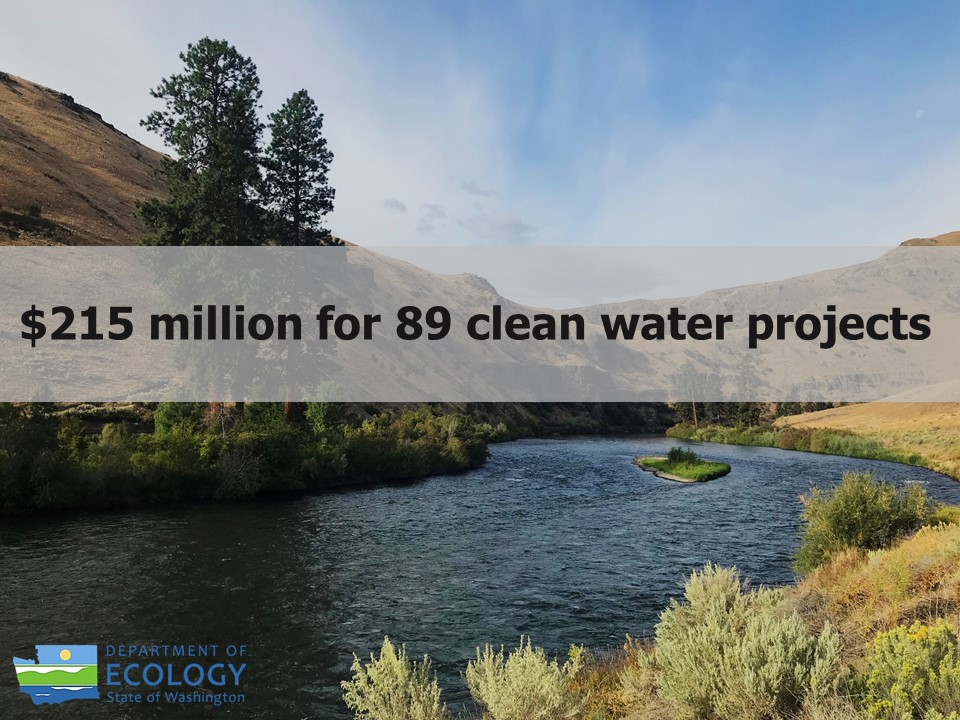
Ecology is proposing to award $215 million in grants and loans for 89 high-priority clean water projects across the state. Our Water Quality Combined Funding Program supports local communities by helping them upgrade wastewater treatment systems and sewer systems, manage polluted stormwater, and complete a variety of other projects to prevent and cleanup more diffuse sources of pollution also known as nonpoint pollution. More than $172 million of the funding is for projects that will help support Puget Sound recovery by improving water quality and creating a healthier habitat for the endangered Southern Resident Orca, salmon, and their food web.
“These projects are vital to support Puget Sound recovery and protect our waters across the state,” said Heather Bartlett, Ecology’s Water Quality Program Manager. “Continued support from the legislature to fund these projects ensures Washingtonians clean water now and for future generations.”
We always receive more project applications than we are able to fund. We were only able to fund 54% of the need during this cycle. In addition, State Centennial Clean Water Program grant resources were reduced in recent biennia. We use this funding for both wastewater-hardship projects and nonpoint pollution control projects. Some of these unfunded projects include small financially challenged communities with expensive wastewater infrastructure repair needs.
Nearly 90% of the funding the water quality program receives is passed through to local communities for environmental projects. Our clean water funding comes from a mix of state and federal funds dedicated for water quality improvements and protection. State financial managers calculate that 11 direct and indirect jobs are created in Washington for every $1 million spent on building clean water infrastructure. We encourage your comments on our draft list of projects as well as comments on our evaluation.
Here are some highlights about the potential projects
Ebey Slough will benefit from upriver green development that mimics natural environment.
- The town of Marysville in Snohomish County is slated to receive a $2.3 million grant to improve water quality in Ebey Slough (a tributary to the Snohomish River estuary). The project will install green infrastructure, infrastructure that mimics natural environment at both 2nd Street and Cedar Avenue to help reduce fine particles, oils, copper, zinc, and phosphorus in addition to reducing flows.
- The City of Rosyln in Kittitas County is proposed to receive a $156,984 grant to develop a plan for reducing stormwater impacts to Crystal Creek, an impaired waterbody. The project will evaluate options for low impact development and best management practices to guide future design and implementation of capital improvement projects to improve water quality.
Twenty-one projects are set to receive $9 million in grants and low interest rate loans to address nonpoint pollution. Nonpoint pollution has a significant impact on water quality; it comes from activities a variety of diffuse sources instead of an identifiable pipe. The top-rated nonpoint projects include: A previous restoration brought the creek from inside a pipe into the daylight. Now improvements to the creek will continue to restore natural function.
- The City of Bellingham in Whatcom County is on the list to receive a $500,000 grant to improve the water quality and aquatic function of Padden Creek, an urban stream. The project will create structurally and biologically diverse instream, off-channel, and riparian buffer habitats, through the use of floodplain widening, riparian buffer enhancement, wetland restoration, and installation of large woody debris in addition to the creation of backwaters, side channels, pools, and riffles.
- The nonprofit, Mid-Columbia Fisheries Enhancement Group, is slated for a $250,000 grant for work in the upper Yakima River in Kittitas County. The project aims to reduce sediment, fecal coliform, and temperatures through riparian buffer restoration and protection projects, including: installing riparian trees along 900 stream feet; excluding livestock on 25 acres along 2,700 stream feet; maintaining plants along 3,000 stream feet; and identifying 10 new projects within a 30 mile area.
A trickling filter at the Town of Garfield’s wastewater treatment plant. Their project will fix issues significantly affecting the plant function.
- The Town of Garfield in Whitman County is proposed to receive $610,643 in a combination of grant, forgivable loan, and low interest loan to line sewer mains at critical locations throughout the town. The project will fix key deficiencies in the sewer system that were identified during a recent infiltration and inflow study. The deficiencies are significantly affecting the function of the town’s wastewater treatment plant.
- Okanogan County Public Health is slated to receive $97,829 in forgivable loan and low interest loan to remove an old septic system and connect an Oroville Housing Authority seasonal farmworker/homeless housing project to the City of Oroville’s sewer system. Our funding will complement funding from other agencies to fully fund the project. The goal of the project is to avoid contamination of Tonasket Creek that occasionally floods the current septic system’s drain field. Tonasket Creek drains to the Okanogan River.
Let us know what you think
A public review and comment period on the Draft Funding List is open until 5:00pm on Feb. 17, 2020. We will hold a public meeting to present the Draft Funding List and discuss the project evaluation and funding process.
Public Meeting:
Wednesday, Feb. 5 at 10 a.m.
Pierce County Library
3005 112th Street East
Tacoma, WA
How to comment
Please email comments to:
Daniel Thompson
Department of Ecology
Water Quality Program - Financial Management Section
P.O. Box 47600
Olympia, WA 98504-7600
Email: daniel.thompson@ecy.wa.gov
We will respond to all comments received during the comment period and notify all commenters when we publish our Final Funding List around July 1.
More information
For more information, including access to an interactive map of funded projects and access to a worksheet describing the projects and funding proposed, please visit the Water Quality Combined Funding Program Funding Cycles webpage


